Academy Patrons
What Makes A Good Citizen: Stephen D. Bechtel, Jr.
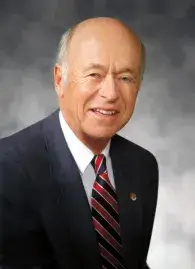
In the spring of 2018, Stephen D. Bechtel, Jr., asked the Academy, “What makes a good citizen?” His question challenged the Academy to explore what it means to be a good citizen in the twenty-first century and became the impetus for the Commission on the Practice of Democratic Citizenship, one of the most impactful initiatives in the Academy’s modern history.
Even earlier, in 2013, Stephen Bechtel played an active role in the development and funding of the Academy’s Stewarding America project, which investigated the civic institutions that inspire and model good citizenship. Through in-depth analyses of the government, the courts, the media, the military, corporations, unions, and the education system, the Academy developed a better understanding of the role each of these institutions played in the American democratic system. The project also considered ways to increase civic participation and public confidence in American leaders and institutions. In many ways, Stewarding America served as a precursor to the Commission on the Practice of Democratic Citizenship.
Since 1990, Stephen Bechtel and his foundation contributed over $6.8 million to the Academy. In 2005, the S.D. Bechtel, Jr. Foundation provided funding for the Science, Engineering, and Technology program area. In recognition of his generous support, in 2006 the Academy named its auditorium for Stephen. Since then, the Stephen D. Bechtel, Jr. Auditorium has provided a gracious and elegant accommodation for Stated Meetings, concerts, conferences, and convenings. Most recently, the S.D. Bechtel, Jr. Foundation provided financial support for the Commission on the Practice of Democratic Citizenship as well as the implementation of its final report, Our Common Purpose: Reinventing American Democracy for the 21st Century.
Stephen D. Bechtel, Jr., passed away on March 15, 2021. His legacy will be remembered through his many contributions to the Academy. With generosity, leadership, guidance, and passion, he demonstrated exactly what makes a good citizen.
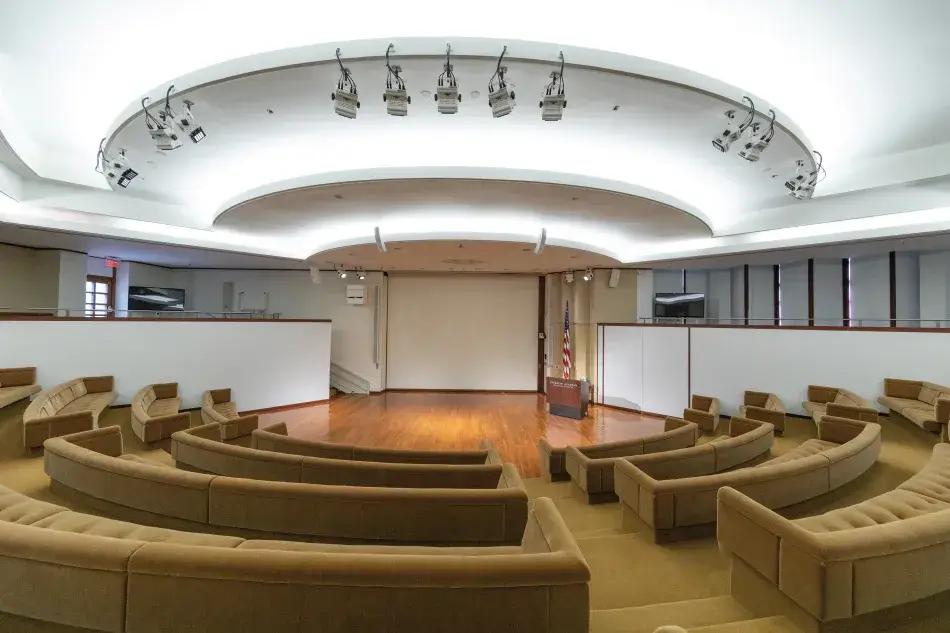
New Academy Fellowships supported generously by the Raymond Frankel Foundation, the Hellman Foundation, the Carl & Lily Pforzheimer Foundation, the Virginia Wellington Cabot Foundation, and the Cabot Family Charitable Trust.
Over the past decade, the Academy has provided a growing number of career-building fellowships for postdoctoral scholars. With thanks to the generous contributions of members and foundations, the Academy now offers four fellowships dedicated to advancing the Academy’s broad portfolio of academic and policy work.
Raymond Frankel Nuclear Security Policy Fellowship
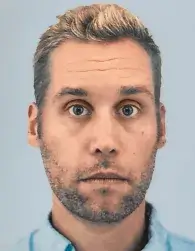
In May 2021, the Raymond Frankel Foundation made a grant of $2 million to endow a new fellowship in nuclear security policy. Poul Christiansen is the inaugural Raymond Frankel Nuclear Security Policy Fellow.
Prior to joining the Academy, Poul earned his PhD in political science from the University of Ottawa and worked for the Pugwash Conference on Science and World Affairs. As the inaugural Raymond Frankel Nuclear Security Policy Fellow, Poul leads the Academy’s project on Promoting Dialogue on Arms Control and Disarmament and supports work in Meeting the Challenges of the New Nuclear Age. When asked what this fellowship means to him, Poul responded, “The Frankel Fellowship is a great platform for me to engage with the policy world and apply my academic training to a different set of challenges. The project work has been a great learning curve on how to navigate the congressional attention span and think through questions that will be important for my career development. The deep expertise of Academy members and the strong network of affiliated scholars and policy-makers provide a superb resource and opportunities for my career progression. Above all, it is the opportunity of doing so in the professional and welcoming environment that Academy staff have created.”
Louis W. Cabot Fellowship
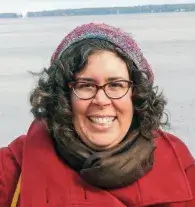
Jessica Taylor is the inaugural Louis W. Cabot Fellow, a humanities policy fellowship established with the philanthropic support of the Virginia Wellington Cabot Foundation and the Cabot Family Charitable Trust in memory of the late Louis W. Cabot. Prior to joining the Academy, Jessica received a PhD in linguistic anthropology from the University of Toronto and was a Research Associate at Harvard University in Studies of Women, Gender, and Sexuality. At the Academy, Jessica contributes to the Commission on the Arts, in which she facilitates the writing and editing of the Commission’s reports as well as supports related public events and engagements. When asked about her experience, Jessica said, “Receiving this fellowship was life-changing for me, especially coming as it did in the midst of a global pandemic that has been extremely challenging for both higher education and the arts and culture sector. As I transition into work outside of the university, I’m very pleased to have an opportunity to put my training and experience to good use in the service of the Academy’s projects–and to learn as much as I can from the fabulous people who work here and the fantastic and knowledgeable members across all sectors.”
Carl & Lily Pforzheimer Foundation Fellowship
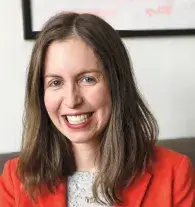
A second endowed fellowship in the humanities is supported by a past contribution from the Carl & Lily Pforzheimer Foundation. Elizabeth Youngling is the inaugural Carl & Lily Pforzheimer Foundation Fellow. She received her PhD in cultural anthropology from the University of Illinois at Urbana-Champaign, where her research focused on the role of housing stakeholders in the reconstruction of U.S. homeownership after the 2008 recession. At the Academy, Liza works on the Commission on the Practice of Democratic Citizenship and a new project on economic inequality. When asked what this fellowship means to her, Liza replied, “I pursued a PhD in cultural anthropology because I wanted tools to understand and respond to complex human challenges. But after finishing my degree, I was unsure how to apply those tools in a meaningful way. The Carl & Lily Pforzheimer Foundation Fellowship has given me a path forward. I have the opportunity to work with an incredible group of colleagues, Academy members, and practitioners to address some of the most pressing policy issues of our time, such as how to strengthen American democracy and create an economic system that prioritizes the public good. This fellowship is giving me experiences, relationships, and skills that will allow me to have an impactful career in public policy.”
Hellman Fellowship in Science and Technology Policy
These three new fellowships build on the success of the Hellman Fellowship in Science and Technology Policy, a two-year fellowship supported by the Hellman Foundation. Since 2007, the Hellman Fellowship has provided eleven scientists with the opportunity to explore and launch careers in public policy, while playing key roles in advancing the Academy’s science and technology programming.
The Hellman Fellowship program continues to thrive. In 2019, immediately following her fellowship, Erica Palma Kimmerling joined the Association of Science and Technology Centers (ASTC) as a Senior Advisor for Science Engagement Policy and Partnerships. In this role, she launched the emerging network for Leaders in Science and Technology Engagement Networks (LISTEN) as ASTC’s Civic Science Fellow, supported by the Kavli Foundation. On June 1, 2021, Erica became a Senior Policy Advisor for Public Engagement in Science at the White House Office of Science and Technology Policy.
Current Hellman Fellow Amanda Vernon was promoted recently to Program Officer for Science, Engineering, and Technology at the Academy. In this role, she leads the projects on Challenges for International Scientific Partnerships and New Models for U.S. Science and Technology. The Academy’s newest Hellman Fellow is Sophia Charan, who begins her fellowship in September 2021 after earning her PhD in chemical engineering from the California Institute of Technology.
Leading By Example: David M. Rubenstein
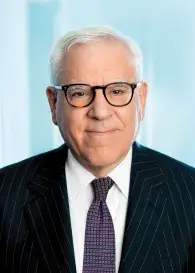
In his 2020 book, How to Lead: Wisdom from the World’s Greatest CEOs, Founders, and Game Changers, David Rubenstein wrote, “Why should anyone really want to be a leader? First, a leader can create the type of change or results that will improve the lives of others. Second, a leader can motivate others to become leaders, and in turn improve others’ lives. And third, a leader can feel a sense of accomplishment and achievement that provides human fulfillment and happiness.”
A true leader by example, in February 2021, David Rubenstein made the largest donation in the Academy’s 241-year history, pledging $10 million to support two initiatives. The gift provides funding for a new addition to the Academy building to house the institution’s archival collections, thereby making these historic records more accessible to all. The gift also establishes a new Rubenstein Fund for American Institutions, supporting Academy projects and commissions devoted to advancing democracy and justice.
In 2016, David Rubenstein made a gift of $5 million to establish the Rubenstein Enhancement Fund at the Academy. That fund continues to support a number of Academy activities, including the Making Justice Accessible project, the Commission on the Practice of Democratic Citizenship, the Exploratory Fund, and the Annual David M. Rubenstein Lecture.
David Rubenstein’s involvement in the Academy goes far beyond his philanthropy. A member of both the Academy’s Board of Directors and Trust, he also serves as the cochair of the current capital campaign, partnering with Louise Bryson to help raise $100 million. In addition, at the annual David M. Rubenstein Lecture, held during the Induction weekend, Mr. Rubenstein interviews an Academy member who exemplifies the excellence and accomplishments of the newly inducted class. Past interviewees include astronaut Kathryn D. Sullivan; Supreme Court Justice Sonia Sotomayor; and actress, playwright, and author Anna Deavere Smith.
When asked about the impact David Rubenstein has made at the Academy, Chair of the Board Nancy C. Andrews said, “We are deeply grateful for all that David has contributed to the American Academy, through his generous gifts and his dedicated service. He brings tremendous experience to our Board and inspires our work with the same amalgam of patriotism and vision that motivated our founders 241 years ago.”